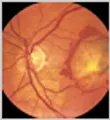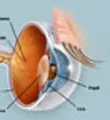Skip to content

Enter Search Keywords. Use the arrow keys to navigate suggestions. Health A-Z
Common Conditions
View All ADD/ADHD Allergies Arthritis Cancer Cold, Flu & Cough Depression Diabetes Eye Health Heart Disease Heartburn/GERD Pain Management Sexual Conditions Skin Problems Sleep Disorders
Featured Topics
Identifying Bugs and Their Bites Bothered by Yeast Infections? The Worst Shoes for Your Feet WebMD Symptom Checker Health concern on your mind?
See what your medical symptoms could mean, and learn about possible conditions.
Learn More
Resources
WebMD Expert Blogs: Read expert views and commentary on popular health topics. WebMD Communities: Connect with people like you, and get expert guidance on living a healthy life. WebMD Physician Directory: Find a doctor in your area.
WebMD Pain Coach

Track your pain levels, triggers, and treatments. Set goals and get tips with our app for iPhone. Drugs & Supplements
Find Information About:
Drugs & Supplements
Get information and reviews on prescription drugs, over-the-counter medications, vitamins, and supplements. Search by name or medical condition.
Find or Review a Drug Find or Review a Vitamin or Supplement Find Drug Coupons Drug Basics & Safety Commonly Abused Drugs What's Your Medication IQ? Food, Medical Product & Cosmetic Safety WebMD Pill Identifier Having trouble identifying your pills?
Enter the shape, color, or imprint of your prescription or OTC drug. Our pill identification tool will display pictures that you can compare to your pill.
Learn More
Drug News
Get the Latest Drug Approvals & Alerts Find FDA Consumer Updates Sign up to receive WebMD's award-winning content delivered to your inbox. FDA Approves Diet Pill Belviq FDA Delays Decision on Blood Thinner Eliquis
WebMD Mobile Drug Information App

Drug, supplement, and vitamin information on the go. Living Healthy
Featured Content

Want luxurious locks?
WebMD cuts through the hype to reveal the best kept secrets for healthy hair.
Living Healthy at a Glance
Living Healthy Centers
View All

Diet, Food & Fitness Weight Loss & Diet Plans Food & Recipes Fitness & Exercise

Beauty, Balance & Love Healthy Beauty Health & Balance Sex & Relationships Oral Care

Living Well Women's Health Men's Health Aging Well Teens
Featured Topics
BMI Calculator: Get Personalized Results Portion Size Plate: Easy Serving Size Guide Your Birth Control Options 19 Secrets Men Wish Women Knew Quiz: Weird, Crazy Dreams Food & Fitness Planner: Personalize Your Weight Loss Plan
WebMD the Magazine App

Get every issue of WebMD the Magazine with a free subscription for your iPad. Family & Pregnancy
Featured Content

Traveling abroad?
Protect yourself and your family by learning which health precautions and vaccines are advised for your destination.
Family & Pregnancy at a Glance
Family and Pregnancy Centers

Pregnancy Trying to Conceive First Trimester Second Trimester Third Trimester

Parenting Newborn & Baby Children's Health Children's Vaccines Raising Fit Kids Mom's Guide to Winter Family Health

Pets Healthy Cats Healthy Dogs
Featured Topics
Know the Signs of Early Pregnancy? Test Your Smarts: What's Safe to Eat When You're Pregnant? Peek Inside the Womb to See How Baby Grows Healthy School Lunches Quiz: Know How to Avoid The Next Toddler Meltdown? WebMD Vaccine Tracker: Manage Vaccinations for Your Entire Family
WebMD Baby App

Get parenting tips, track schedules, and create a mobile baby book. News & Experts
News
View All

Today's Top Health Headlines

Get the Latest Drug Approvals & Alerts Find FDA Consumer Updates On The Road Again: FDA Mobile Laboratories Sign up to receive WebMD's award-winning content delivered to your inbox.
WebMD Health Experts and Community
Talk to health experts and other people like you in WebMD's Communities. It's a safe forum where you can create or participate in support groups and discussions about health topics that interest you.

WebMD Experts & Blogs Read expert views and commentary on popular health topics.

WebMD Communities Connect with people like you, and get expert guidance on living a healthy life. WebMD Answers
Got a health question? Get answers provided by leading organizations, doctors, and experts.
Get Answers
WebMD Newsletters

Sign up to receive WebMD's award-winning content delivered to your inbox. My WebMD Sign In, Sign Up
My WebMD Sign In
Please enter email address Enter your password Keep me signed in on this computer Show more Information If you select "Keep me signed in on this computer", every time you visit WebMD.com you won't have to type your email address and password. This means that a cookie will stay on your computer even when you exit or close your browser which may reduce your levels of privacy and security. You should never select this option if you're using a publicly accessible computer, or if you're sharing a computer with others. Even if you select this option there are some features of our site that still require you to log in for privacy reasons. Forget your password? Having trouble signing in?
Why should I
sign up for WebMD?
With a WebMD Account you can:
Track your way to weight loss success Manage your family's vaccinations Join the conversation See more benefits Sign Up Why WebMD? My WebMD Show Menu My Tools My WebMD Pages My Account Sign Out FacebookTwitterPinterest WebMD Home

Eye Health Center

Macular Degeneration Health Center

Macular Degeneration News Email a FriendPrint Article Macular Degeneration Health Center Tools & ResourcesAdapting to Reduced VisionHow to Pick Good SunglassesYour Vision in AdulthoodAMD SymptomsAMD TreatmentVideo: Early Signs of AMD Font Size A A A Regular Aspirin Use May Boost Risk of Eye Problem ByKathleen Doheny
WebMD Health News Reviewed byLaura J. Martin, MD

Dec. 18, 2012 -- Taking aspirin regularly appears to slightly raise the risk of the eye condition known as age-related macular degeneration or AMD, new research suggests.
The increased risk only occurred with people who had taken aspirin regularly 10 years before they were diagnosed with the potentially blinding eye disease. They had taken aspirin at least twice a week for more than three months, says researcher Barbara E.K. Klein, MD, MPH.
The risk was for the type of macular degeneration known as wet or neovascular AMD, says Klein, professor of ophthalmology and visual sciences at the University of Wisconsin School of Medicine, Madison.
Wet macular degeneration is generally more severe than another version, known as dry macular degeneration.
Although people taking aspirin regularly were two times more likely to get the condition, Klein says the absolute risk is still low because the condition is not common. About 1% of people aged mid-40s and older get wet macular degeneration, she says.
Klein studied nearly 5,000 men and women, ages 43 and older. She followed them for 20 years, although not all of them stayed in the study that long.
The research is published in the Journal of the American Medical Association.
Aspirin & Eye Problems: Study Details
Previous research findings about aspirin use and macular degeneration risk have been mixed.
As aspirin use and macular degeneration are increasing, Klein decided to follow men and women over many years to see if she could find a link.
Nearly 20% of adults, or 1 in 5, take aspirin regularly. Some use it for temporary relief of pain or fever. Others take it daily to prevent heart attacks.
The macula is a small area of the retina, the tissue lining the back of the eye, that is responsible for central vision.
Klein looked at wet (late) and dry (early) macular degeneration for the study. Both are potentially blinding conditions.
Over the course of the study, 512 people were diagnosed with early AMD and 117 with late AMD.
Although regular use of aspirin 10 years before the diagnosis was linked with late macular degeneration, aspirin use five years before the diagnosis was not linked with an increased risk of either form of AMD.
Klein can't explain the link and says it requires more study. "The absolute risk of this is small," she says. "There are so many folks who have been put on aspirin for [heart disease] prevention. ... The [heart] protective effect is still primo."
One co-author, Ronald Klein, MD, MPH, has served as a consultant for Pfizer, which makes AMD medicine. The study was funded by the National Institutes of Health and support from Research to Prevent Blindness.
Aspirin & Eye Problems: Perspective
"This study is suggestive that there may be a relationship but it is by no means definitive," says George Williams, MD, professor and chair of the department of ophthalmology at Oakland University's William Beaumont School of Medicine in Rochester, Mich.
Williams says a weakness in the study is that the men and women self-reported the aspirin use, so it may not have been totally accurate.
If a cardiologist has recommended aspirin for heart disease protection, Williams says, "I would not take anyone off it."
People who take aspirin regularly should consider their risk of macular degeneration and the benefits of taking aspirin, says Michael Tolentino, MD, medical director of the Macular Degeneration Association and an ophthalmologist in Lakeland, Fla.
People at higher risk for the disease include those with a family history, those with light eyes, and smokers.
"Everything is a risk-benefit ratio," he says.
He reports serving as consultant for Novartis, Genentech, Alarcon, and other companies involved in eye drugs.
View Article Sources

SOURCES:
Klein, B. Journal of the American Medical Association, Dec. 19, 2012.
Barbara E.K. Klein, MD, MPH, professor of ophthalmology and visual sciences, University of Wisconsin School of Medicine, Madison.
George Williams, MD, spokesman, American Academy of Ophthalmology; professor and chair of ophthalmology, Oakland University William Beaumont School of Medicine, Rochester, Mich.
Michael Tolentino, MD, medical director, Macular Degeneration Association; associate professor of ophthalmology, University of Central Florida, Orlando; ophthalmologist, Lakeland, Fla.
© 2012 WebMD, LLC. All rights reserved. #url_reference {display: none};#url_reference { display: block; line-height: 150%; margin-bottom: 10px; }#logo_rdr img { visibility: visible; }.titleBar_rdr .titleBarMiddle_fmt { padding-top: 1.5em !important;} Top Picks What's Causing My Eye Floaters? Age-Related Macular Degeneration: What You Should Know Supplements for Healthy Eyes Train Your Brain to Help You See Again Age-Related Vision Problems: Can You Slow Their Progression? Quiz: Could You Be Depressed? Macular Degeneration Health Center Overview Symptoms Diagnosis Treatment & Care Living & Managing Support & Resources See what others are asking about
Visit WebMD Answers
Related to Macular Degeneration Depression Symptoms Eye Health Hypertension Men's Health Over 50: Healthy Aging Women's Health Macular Degeneration Questions & Answers Macular Degeneration Reference /* = Healthy Tips Module------------------------------------------------------- */.healthy-tips { font-family: arial, sans-serif; border: 1px solid #e6e8db; width: 300px; margin-left: 4px; margin-bottom: 8px;}.healthy-tips h2, .healthy-tips p { margin: 0; padding: 0; }.healthy-tips h2 { color: #89a908; font-weight: normal; font-size: 20px; margin-top: 2px }.healthy-tips p { color: #6e6e6e; }.healthy-tips .inner { padding: 10px; }.healthy-tips .header { overflow: hidden; border-bottom: 1px solid #e6e8db; padding-bottom: 5px;}.healthy-tips .header img,.healthy-tips .header a { display: block;}.healthy-tips .header .title { float: left; width: 50%;}.healthy-tips .header .sponsorship { float: right;}.healthy-tips .header .sponsorship a { margin-bottom: 3px;}.healthy-tips .body { border-bottom: 1px solid #e6e8db;}.healthy-tips .body .inner { padding: 10px;}.healthy-tips .body .entry_fmt { width: 45%; float: left; margin-right: 10px;}.healthy-tips .body .header_fmt { font-size: 10px;}.healthy-tips .body .clear_fmt { clear:both;}.healthy-tips .footer { background: url('http://img.webmd.com/dtmcms/live/webmd/consumer_assets/site_images/tools/healthy-tips/tip-background.gif') no-repeat 20px 32px; min-height: 125px; height:auto !important; height: 125px;}.healthy-tips .footer .inner { padding-top: 12px; padding-left: 90px;}.healthy-tips .footer h2 { font-size: 18px;}

On Eye HealthBrought to you by


QUIZCan You Prevent Vision Loss?

VIDEODo I Have Pinkeye? Today in Macular Degeneration

Article What Is Macular Degeneration?

Article Age-Related Vision Problems

Tool What Someone With Macular Degeneration Sees

Image Collection Anatomy of the Eye: See Inside

Article Treatments for Macular Degeneration

Video The Aging Eye

Article Budget Eye Care: Bargains and Risks

Article How to Cope With Reduced Vision Subscribe to WebMD Newsletters WebMD Daily Women's Health Men's Health Weight Loss Wisdom I have read and agree to WebMD's Privacy Policy. Submit Sign up for more topics! WebMD Special Sections Eye Problems: What They Look Like Health Solutions From Our Sponsors Vaccine Questions? Low Testosterone? Diabetes Care for Kids Birth Control for Moms Blood Sugar Control Advanced Prostate Cancer? Diagnosed With Low T? Fibromyalgia & Exercise Hearing Aid Alternative Insulin Pump Therapy Vaccines for All Ages Knee Pain Relief Depression & Adults Treating Fibromyalgia Relapsing MS Community In-depth coverage: Psoriasis Treatment on Target?|Healthy Mouth Help|RA Assessment|Living Healthy Guide|Family & Pregnancy Toolbox|Check Your Heartburn Symptoms Find us on:URAC: Accredited Health Web Site

HonCode: Health on the Net FoundationAdChoicesAbout WebMD Advertise With Us Terms of Use Privacy Policy Sponsor Policy Site Map Careers Contact UsMedscape Reference eMedicineHealth RxList Medscape MedicineNet BootsWebMD WebMD CorporateMedical Dictionary-->First Aid WebMD Magazine WebMD Health Record WebMD Mobile Newsletters Dictionary Physician Directory
©2005-2012 WebMD, LLC. All rights reserved.
WebMD does not provide medical advice, diagnosis or treatment. See additional information.
View the
Original article








 Enter Search Keywords. Use the arrow keys to navigate suggestions. Health A-Z
Enter Search Keywords. Use the arrow keys to navigate suggestions. Health A-Z  Track your pain levels, triggers, and treatments. Set goals and get tips with our app for iPhone. Drugs & Supplements
Track your pain levels, triggers, and treatments. Set goals and get tips with our app for iPhone. Drugs & Supplements  Drug, supplement, and vitamin information on the go. Living Healthy
Drug, supplement, and vitamin information on the go. Living Healthy  Want luxurious locks?
Want luxurious locks?  Diet, Food & Fitness Weight Loss & Diet Plans Food & Recipes Fitness & Exercise
Diet, Food & Fitness Weight Loss & Diet Plans Food & Recipes Fitness & Exercise  Beauty, Balance & Love Healthy Beauty Health & Balance Sex & Relationships Oral Care
Beauty, Balance & Love Healthy Beauty Health & Balance Sex & Relationships Oral Care  Living Well Women's Health Men's Health Aging Well Teens
Living Well Women's Health Men's Health Aging Well Teens  Get every issue of WebMD the Magazine with a free subscription for your iPad. Family & Pregnancy
Get every issue of WebMD the Magazine with a free subscription for your iPad. Family & Pregnancy  Traveling abroad?
Traveling abroad?  Pregnancy Trying to Conceive First Trimester Second Trimester Third Trimester
Pregnancy Trying to Conceive First Trimester Second Trimester Third Trimester  Parenting Newborn & Baby Children's Health Children's Vaccines Raising Fit Kids Mom's Guide to Winter Family Health
Parenting Newborn & Baby Children's Health Children's Vaccines Raising Fit Kids Mom's Guide to Winter Family Health  Pets Healthy Cats Healthy Dogs
Pets Healthy Cats Healthy Dogs  Get parenting tips, track schedules, and create a mobile baby book. News & Experts
Get parenting tips, track schedules, and create a mobile baby book. News & Experts  Today's Top Health Headlines
Today's Top Health Headlines  WebMD Experts & Blogs Read expert views and commentary on popular health topics.
WebMD Experts & Blogs Read expert views and commentary on popular health topics.  WebMD Communities Connect with people like you, and get expert guidance on living a healthy life. WebMD Answers
WebMD Communities Connect with people like you, and get expert guidance on living a healthy life. WebMD Answers  Sign up to receive WebMD's award-winning content delivered to your inbox. My WebMD Sign In, Sign Up
Sign up to receive WebMD's award-winning content delivered to your inbox. My WebMD Sign In, Sign Up 


 QUIZCan You Prevent Vision Loss?
QUIZCan You Prevent Vision Loss? VIDEODo I Have Pinkeye? Today in Macular Degeneration
VIDEODo I Have Pinkeye? Today in Macular Degeneration  Article What Is Macular Degeneration?
Article What Is Macular Degeneration?  Article Age-Related Vision Problems
Article Age-Related Vision Problems  Tool What Someone With Macular Degeneration Sees
Tool What Someone With Macular Degeneration Sees  Image Collection Anatomy of the Eye: See Inside
Image Collection Anatomy of the Eye: See Inside  Article Treatments for Macular Degeneration
Article Treatments for Macular Degeneration  Video The Aging Eye
Video The Aging Eye  Article Budget Eye Care: Bargains and Risks
Article Budget Eye Care: Bargains and Risks  Article How to Cope With Reduced Vision Subscribe to WebMD Newsletters WebMD Daily Women's Health Men's Health Weight Loss Wisdom I have read and agree to WebMD's Privacy Policy. Submit Sign up for more topics! WebMD Special Sections Eye Problems: What They Look Like Health Solutions From Our Sponsors Vaccine Questions? Low Testosterone? Diabetes Care for Kids Birth Control for Moms Blood Sugar Control Advanced Prostate Cancer? Diagnosed With Low T? Fibromyalgia & Exercise Hearing Aid Alternative Insulin Pump Therapy Vaccines for All Ages Knee Pain Relief Depression & Adults Treating Fibromyalgia Relapsing MS Community In-depth coverage: Psoriasis Treatment on Target?|Healthy Mouth Help|RA Assessment|Living Healthy Guide|Family & Pregnancy Toolbox|Check Your Heartburn Symptoms Find us on:URAC: Accredited Health Web Site
Article How to Cope With Reduced Vision Subscribe to WebMD Newsletters WebMD Daily Women's Health Men's Health Weight Loss Wisdom I have read and agree to WebMD's Privacy Policy. Submit Sign up for more topics! WebMD Special Sections Eye Problems: What They Look Like Health Solutions From Our Sponsors Vaccine Questions? Low Testosterone? Diabetes Care for Kids Birth Control for Moms Blood Sugar Control Advanced Prostate Cancer? Diagnosed With Low T? Fibromyalgia & Exercise Hearing Aid Alternative Insulin Pump Therapy Vaccines for All Ages Knee Pain Relief Depression & Adults Treating Fibromyalgia Relapsing MS Community In-depth coverage: Psoriasis Treatment on Target?|Healthy Mouth Help|RA Assessment|Living Healthy Guide|Family & Pregnancy Toolbox|Check Your Heartburn Symptoms Find us on:URAC: Accredited Health Web Site